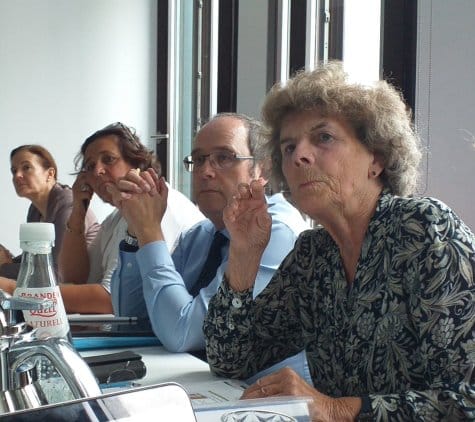
The Madrid International Action Plan on Ageing (MIPAA), the UN Sustainable Development Goals (SDGs), the European Pillar of Social the UN Working Group on Ageing: how to bridge these global and EU processes on the rights of older people? This overarching question was debated at a round-table organised in September 2019 by AGE German member organisation, BAGSO, and the German Federal Ministry for Families, Senior citizens, Women and Youth.
Reviewing processes around ageing and older people’s rights
Looking at how older people are covered by the Sustainable Development Goals (SDGs), Ms Lisa Warth, representative of the UN Economic Commission for Europe, stressed that, while only 7 of 17 SDGs have a direct reference to older persons, most of them are applicable to all. This makes older persons invisible in the process. In their voluntary national SDG reports, governments tend to see older persons mainly as vulnerable people, without also embracing the potential contribution of older persons towards achieving the SDGs.
The discussion on older person’s rights is gaining traction since concrete topics, such as the rights to elder abuse or the right to education have been discussed within the UN ‘Open-Ended Working Group on Ageing’, as Ms Claudia Mahler of the German Institute for Human Rights explained.The ‘Open-Ended Working Group on Ageing’ has a mandate to explore protection gaps and legal elements on the rights of older people in the international context. Both AGE and BAGSO have been participating in the process for a longer time. However, the time frame for reaching a possible international convention on the rights of older people is short, as the working group will face questions about its effectiveness in a couple of years’ time.
The European efforts around older people’s rights were presented by Johan ten Geuzendam, former Adviser on Equal Rights at the Commission’s DG Justice, who emphasized the importance of the European Pillar of Social Rights and its many important principles for older persons. He also gave a vision on the state of advancement of the equal treatment directive, which would ban age discrimination in the access to goods and services, and which has been blocked in the discussions between member states since 2008.
Cooperating with civil society and between portfolios is important

The civil society can help form the missing link between the different processes that concern older persons, underlined Dr Heidrun Mollenkopf of BAGSO (and AGE Vice-President). Dr Mollenkopt presented her own work around the Madrid International Plan of Action on Ageing, and how civil society committees have gained more importance in the regular reviews of the plan. She emphasised an AGE project, the AGE Barometer, as an attempt to cut across all different processes by looking at the experiences of older people in different domains.
In the following discussion, the German ministries present – Ministry of Justice, Ministry of Health (responsible for long-term care), Ministry of Employment and Social Affairs (responsible for pensions) and the foreign ministry (coordinating Germany’s international position) could each propose their different vision on the necessity or not of an new international legal instrument on older people’s human rights and what could move the discussion forward.
To conclude…
The discussion helped to better understand and bridge all these different processes. Regular discussions like this between the different ministries and civil society organisations would be useful to avoid misunderstandings when talking about the rights of older persons.
For more information, please contact Philippe Seidel Leroy philippe.seidel@age-platform.eu.






